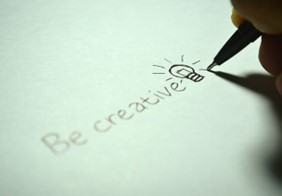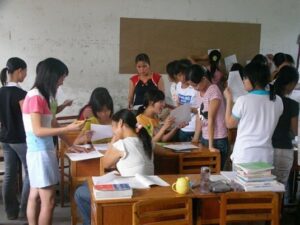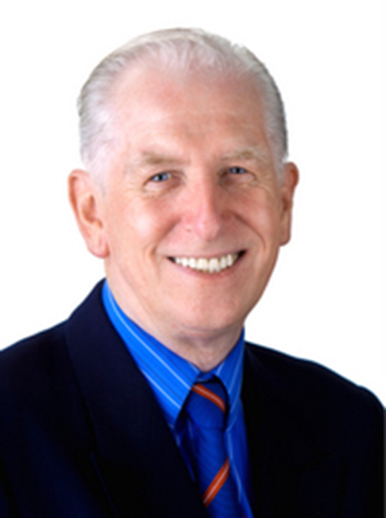Celebrations Of Achievement
- An Educators Guide -
By Dr Charles Margerison
Psychologist
Welcome – Be Inspired!
We support students to raise their levels of achievement.
 It started when I studied the lives and career contributions of over 500 amazing people. These included outstanding contributors in medicine, engineering, music, aviation, science, literature, mathematics, exploration and many other areas.
It started when I studied the lives and career contributions of over 500 amazing people. These included outstanding contributors in medicine, engineering, music, aviation, science, literature, mathematics, exploration and many other areas.
As a psychologist, I was interested to discover what key factors enabled people like Albert Einstein, Marie Curie, Nelson Mandela, Harriet Tubman and others, to succeed. Was it intelligence, creativity, wealth, education, family support, luck or other factors that students could learn from?
Purpose and Performance Plans
After assessing all these, and other issues, I discovered that high achievers identified a purpose in their lives that guided their efforts and energy. They pursued their purpose with a plan and persistence. In the process, they persuaded people to support their efforts and achieved a high level of performance.
These factors can be learned. Therefore, we have established education resources to support teachers in the practical application of character education. These resources are available at www.amazingpeopleschools.com .
School Applications
The resources are used to support over 100,000 students in both primary and secondary levels to inspire them to develop their personal strengths and abilities. They are used in assemblies, tutor time, projects, and in mainstream curriculum classes.
Also, it was suggested that schools could have a Festival of Achievement to recognize the contributions of students and family members. This can be organized in a variety of ways. For example, it can be conducted on one day, or spread over a period of time to highlight the work of different age groups. It can reflect specific areas such as science, art, sport or music. Here are some examples:-
Who Inspires You?
 This was the theme a school adopted to help students focus on people and the processes of achievement. The students studied the lives of amazing achievers and were asked to choose a person they felt inspired them, and to represent that person on a chosen day. They could either dress up like the person or write a speech by the person or present their life and achievements in any way they felt appropriate. It led to a high level of creative engagement.
This was the theme a school adopted to help students focus on people and the processes of achievement. The students studied the lives of amazing achievers and were asked to choose a person they felt inspired them, and to represent that person on a chosen day. They could either dress up like the person or write a speech by the person or present their life and achievements in any way they felt appropriate. It led to a high level of creative engagement.
Life Stories
This is an approach where students are asked to research the life of a high achiever in sport, music, business, engineering, science or other areas. The person can be from the past or present. Students meet in groups of three or four. Each student presents the key points of the person’s life in five minutes, after which other students have ten minutes to ask questions.
Cafe Meetings
Students at one school created their own Amazing People Cafe in which they displayed photos and images of amazing people with a summary of their achievements. When students went to the café, they were inspired to read about the achievements of the people featured and informal discussions were started.
Innovator Meetings
Students can be invited to choose a person who they feel made major innovation breakthroughs. For example, the theme may be innovators in engineering, music, architecture, or medicine. Students meet in groups of three or four and explain to the other students why their chosen person can be regarded as an innovator. After each five minute presentation, the other students ask questions and discuss the issues arising.
Interviews
Students can be asked to choose a person they wish to interview. This can be a virtual interview with a person from the past who they admire, or someone in their community, such as a nurse or a fire fighter. They share the questions asked and the responses received with two or three other students and discuss points arising.
Literature
Students can choose a quote, a poem or a speech. It may be, for example, the poem titled ‘If’ by Rudyard Kipling. They can then meet with two or three or other students and explain why the text they have chosen is important and what it means in terms of their own achievement purpose and plans. In the process, other students ask questions to gain further understanding of the points raised.
Timetable
These are all practical examples by which students can learn with and from each other about character strengths that lead to achievement. Also, these activities can fit into a classroom session that lasts for 45 minutes to an hour.

A sample timetable for a classroom lesson could be as follows:
Introduction – 5 minutes
As preparation for the class, the educator will have asked students to bring a quotation or a poem that they find inspirational. Students are asked to meet in discussion groups of three or four. Each group appoints a chairperson.
Discussion – 20 minutes
Each student presents their quotation or poem and explains why they find it helpful, indicating how they use it in their studies of life.
Presentations – 15 minutes
The chairperson of each group summarises the main points arising to the whole class.
Review – 10 minutes
The educator comments on how the issues mentioned can be used to improve personal achievement, and allocates the topic and project for the next lesson.
The above process helps students develop their group discussion skills and enables them to share ideas on how to improve their levels of achievement. The class presentation enables other students to learn ideas from their classmates, which can help them to improve their own performance levels. This is a powerful way of enabling students to support their classmates with inspirational examples.
Summary
There are many ways in which educators can engage students in the celebration of achievement. In doing so, students can understand how others have organized their time, ideas and energy in order to succeed. That is the basis upon which they can be inspired to raise their own level of achievement.
This leads to what I call the ‘can do spirit.’
There is no doubt that beyond education, money, intelligence and creativity, all amazing people developed their own ‘can do spirit’ of determination to persist until they succeeded, often despite the barriers and difficulties they faced.
Amazing People Schools helps students develop their ‘can do spirit’ attitude and to convert that into personal and professional achievements.









